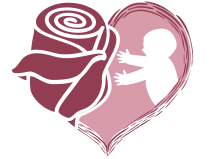Information on the basic stages of the adoption procedure according to the Bulgarian law
The Republic of Bulgaria ratified the Hague Convention on Protection of Children and Co-operation in Respect of Intercountry Adoption on January 31, 2002 and the Convention became effective and a part of the Bulgarian legislation on September 1, 2002.
The Family Code of 2009 and the by-laws pertaining to it provide for a number of safeguards so that the intercountry activities to be performed in line with protection of the child’s rights and with abiding by the child’s basic rights and in compliance with the requirements of Article 21 of the UN Convention on the Rights of the Child.
The Ministry of Justice (MoJ) is the Central Authority for Bulgaria under the Hague Convention and it performs all the activities relating to intercountry adoptions.
The Ministry of Justice has an Intercountry Adoption Council (IAC) which has important advisory functions with reference to intercountry adoption. The IAC is a standing authority and has weekly sessions; one of its main functions is to make proposals to the Minister of Justice for determining suitable adoptive parents for a specific child.
The Bulgarian legislation requires only accredited by the MoJ not-for-profit organizations to be entitled to carry out mediation in intercountry adoption procedures; these organizations are registered in a public register of the MoJ.
According to the Family Code of the Republic of Bulgaria a child habitually resident in Bulgaria may be adopted by a person habitually resident abroad only when the possibilities for the adoption of the said child in Bulgaria have been exhausted and the child is registered in the MoJ Register for Children Available to be Adopted by Persons Habitually Resident Abroad under the Conditions of Full Adoption. Each child at the age between 1 and 18 years who is available for adoption shall be registered in the Adoption Register of the respective local Social Assistance Directorate according to the child’s residence. Within one month as from the child’s registration with the adoption register, the Adoption Council of the respective District Social Assistance Directorate shall determine suitable adoptive parent(s) pursuant to Article 95, para 1 of the Family Code. If within 6 months as from the date of registration of the respective child it is not possible to find parents or if at least three PAP’s, Bulgarian citizens refuse to adopt the child, the information about the child shall be submitted ex officio to the MoJ (in its capacity as Central Authority) so that suitable foreign adoptive parent(s) to be determined.
A child habitually resident in the Republic of Bulgaria may be adopted by a person habitually resident abroad only if the child is enrolled in the MoJ Register.
A child habitually resident in the Republic of Bulgaria may be adopted by a foreign national only under the conditions of full adoption.
Twins shall be adopted together; they may be adopted separately only by exception. Siblings shall be adopted together too if they have emotional bond.
| Requirements towards the PAP’s: |
| They must not be deprived of parental rights;
They must not be convicted for criminal offences; They must have a permission to adopt a child according to the laws of their country; They must not suffer from any mental disorders or serious chronic diseases, contagious venereal diseases, AIDS, tuberculosis or other diseases that are a menace to their lives; If they wish to adopt concurrently, they must be married; The age difference between the PAP and the child being adopted must be at least 15 years and also the requirements of the laws in the country of the PAP’s or of the country where they reside have to be complied with; The Family Code of the Republic of Bulgaria allows single foreign nationals to adopt a child who is a Bulgarian citizen. The Bulgarian law forbids a child to be adopted by more than one person unless they are spouses. Legal consequences of full adoption: Between the adoptive parents and their relatives and the adopted child rights and obligations arise as if they are natural relatives; Full adoption cuts off all existing relations between the child and his/her natural relatives; When the adoption procedure is completed the adoptive parents have the status of only parents to the child. Their responsibility towards the child is as if they are his/her biological parents. |
